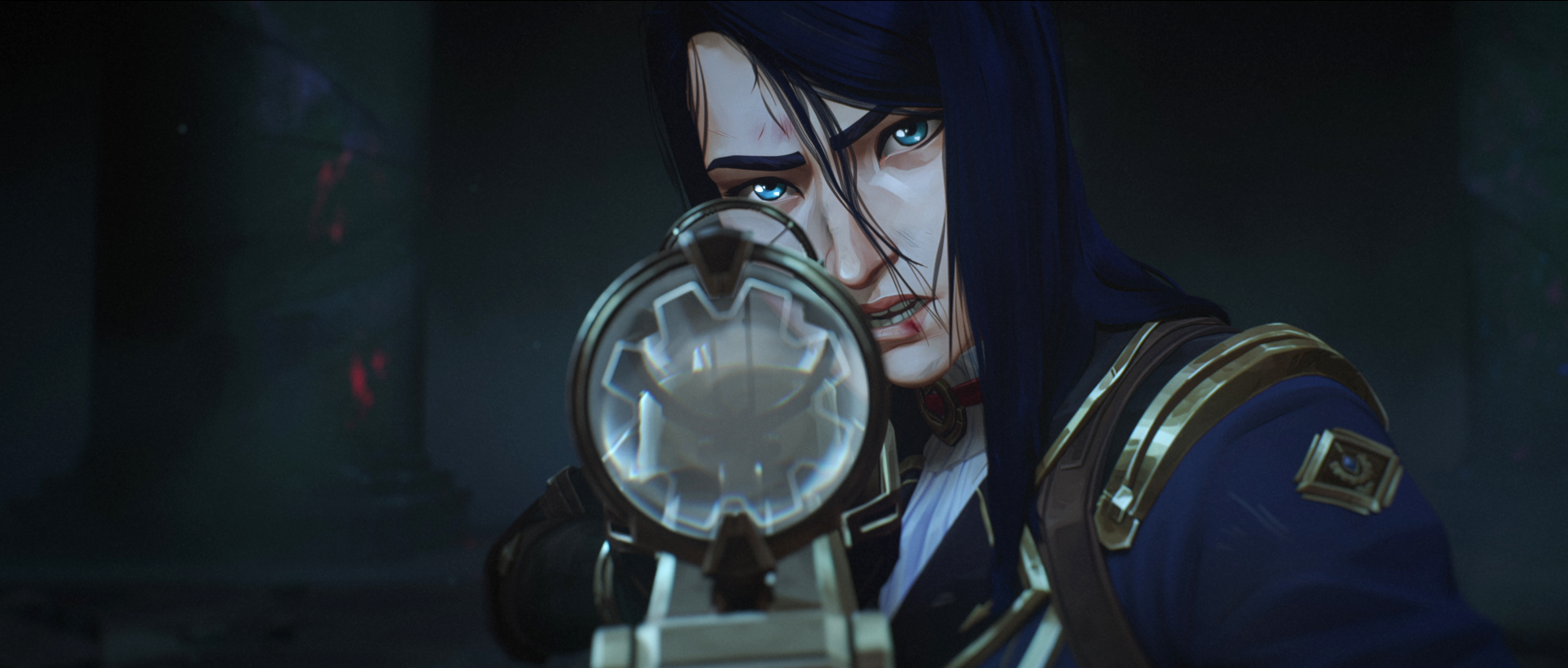
I’ve been playing League of Legends since the game’s earliest days. I read the Journal of Justice, an in-universe publication from back when the League of Legends was a giant fighting arena for nations to settle political disputes. I witnessed the setting’s first big retcon in 2014, and the successive comics, events, novellas, and cinematics. Arcane is undoubtedly a triumph, both critically acclaimed and hugely popular. But the final episodes have thrown me for a loop. You would think my experience would give me more insight, but instead I’m completely in the dark.
There are creative decisions in Arcane that make for a more effective story, and it’s probably a good thing that Fortiche isn’t chained to every choice Riot has made during League’s long and winding history. That creative freedom has likely led to a better story, and I imagine people who have never played League of Legends can enjoy the show on its own merits.
But here’s a tricky question: Is Arcane canon? The answer is technically yes, but practically no. TBSkyen, a content creator and analyst, laid out the quandary in a short video.
The characters in Arcane don’t match up to their biographies on the League of Legends website. The stories are close enough, and if you squint, you can see how everything lines up. But the small details are off, and if you loved a character from Arcane, you can’t easily follow their journey into the rest of the main canon. As a long-time lore fan, trying to reconcile those differences is tough.
Are certain characters alive or dead? Did their origin stories ever overlap with champions from Piltover and Zaun that didn’t exist in League? Do Caitlyn and Ekko have parents? What’s the deal with Seraphine’s hextech? Where’s Blitzcrank? These questions haunt me, and the existing media doesn’t help. The Riot Forge game Convergence is a solid platformer that explores Ekko through an adventure in Zaun, but it follows the “old” canon from before Arcane. Are these different universes or was Convergence
To be fair, Arcane does set up the existence of at least one parallel universe. In that sense, Arcane is canon – and so is every piece of League media ever produced, because it could be in an alternate universe. But at that point, each story loses its narrative weight, and everything feels messy. Even if this guarantees there’s at least one happy ending for all these characters, it still doesn’t feel great to walk away from Arcane with more questions than answers about the “current” state of Zaun and Piltover.
What’s worse is that Riot has left plot points dangling before, sometimes never to be revisited. A few years ago, Riot published the short story Bloodline by Graham McNeill, which set up an ongoing storyline with prominent Shuriman characters like Taliyah, Sivir, and Nasus. But that plot was quietly dropped, and then Taliyah quietly resurfaced in other cinematics and stories. Arcane has a significantly larger investment in it; the 18 episodes reportedly cost $250 million. But what if it also falls by the wayside?
When Riot reset its lore in 2014, it left certain champions in limbo. Over time, those characters have been revisited and refined. There are still a few champions left who stick out like sore thumbs, though. Shaco, a killer clown character notorious for his annoying gameplay, still doesn’t have a backstory or lore explanation of any kind.
Arcane is gorgeous and innovative, but as a long-time League lore fan, I have no idea what the fuck is going on. Riot will be providing some updates for Arcane-related champions; Viktor is already confirmed to have an art and sustainability update in the works. And it’s clear that League of Legends’ world is a rich source of inspiration, but it’s rough to follow the overall universe when the central product is so disorganized and mismatched.